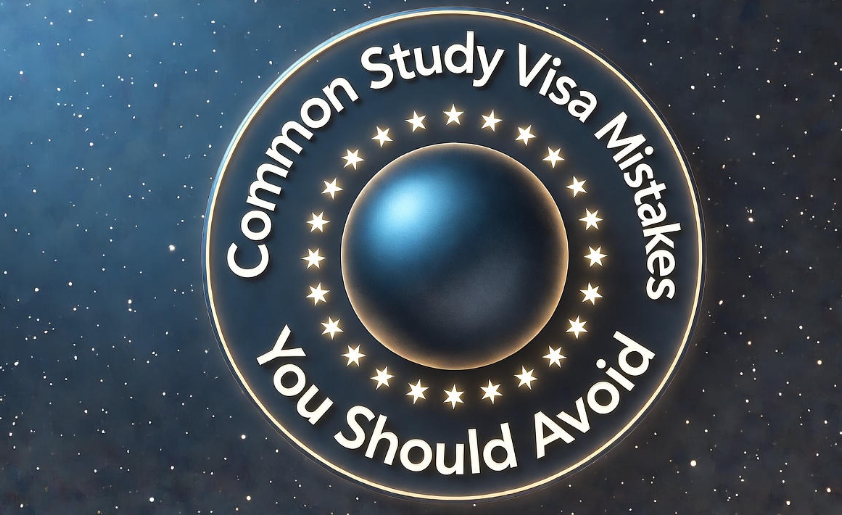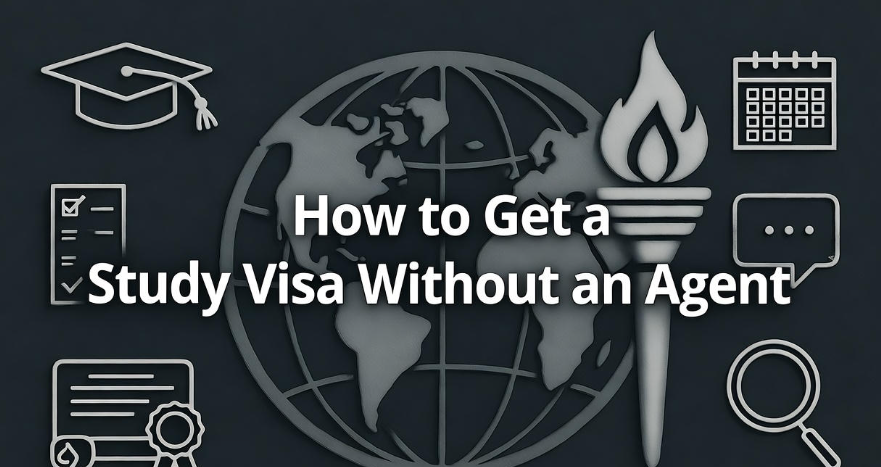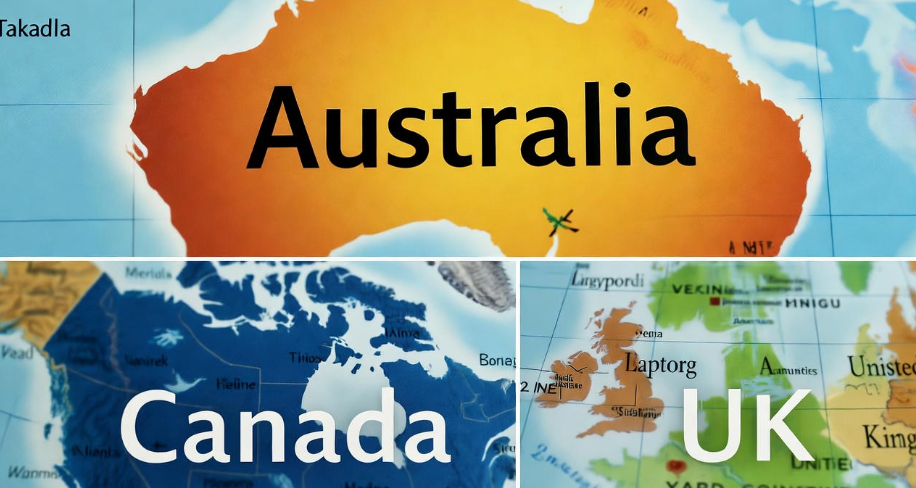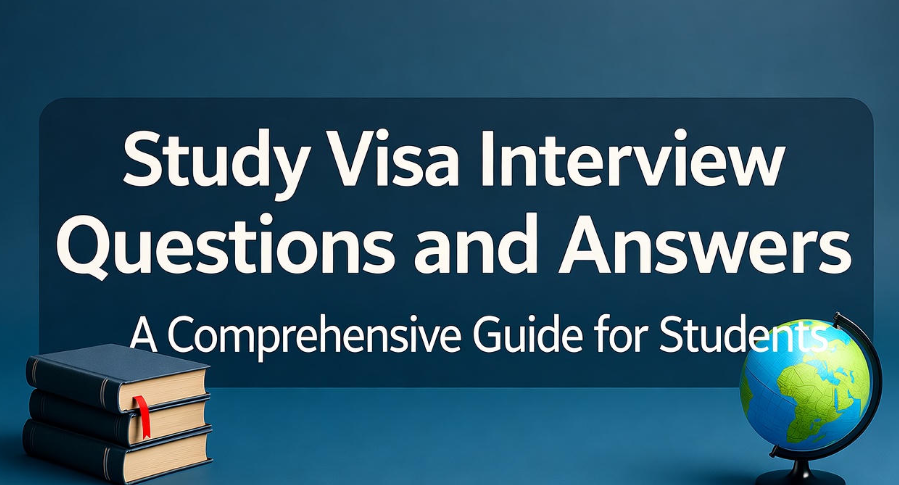So, you’ve made up your mind to study abroad—how exciting! New country, new culture, and of course, new opportunities. But before you pack your bags and start dreaming of international adventures, there’s something important you need to handle correctly: your study visa.
Many students, without even realizing it, make small errors during their visa application process. These little mistakes can turn into big problems, sometimes leading to delays, rejections, or even bans from applying again for a while. Sounds scary? It can be—but don’t worry. This guide will walk you through the most common study visa mistakes you should avoid, written in a simple and human tone so you can understand each step clearly.
Not Checking The Visa Requirements Properly
One of the most common (and surprisingly easy-to-make) mistakes is not reading the visa requirements carefully. Each country has its own rules, and even within the same country, requirements can differ depending on the program or the university.
For example, applying for a study visa for Canada is different from applying for one for Germany or Australia. Some ask for specific financial proof, while others demand language proficiency certificates.
Here’s the golden rule: Always double-check the latest visa checklist on the official immigration website before applying.
| Country | Example of Unique Visa Requirement |
|---|---|
| Canada | GIC (Guaranteed Investment Certificate) proof required |
| Germany | Blocked bank account confirmation |
| Australia | Overseas Student Health Cover (OSHC) mandatory |
| UK | Confirmation of Acceptance for Studies (CAS) number |
| USA | SEVIS Fee payment proof |
A small missing document or outdated form can cause a major headache later. So before you even start filling anything, take a deep breath and go through that checklist carefully.
Applying Too Late ⏰
Timing is everything when it comes to visa applications. Many students assume they can apply just a few weeks before their course starts. Unfortunately, visa processing times vary—sometimes due to seasonal rush or embassy workload.
A delay of even a few days in document verification can push your plans back by months. Some embassies take 4 to 12 weeks or more to process applications, depending on your country and time of year.
So, apply early—preferably 3 to 6 months before your intended start date. It gives you enough breathing room in case they ask for additional documents or an interview.
Submitting Incomplete or Wrong Documents
This mistake is more common than you think. Students often forget small things—like not signing a form, submitting unclear photocopies, or mixing up financial statements.
Remember: embassies won’t correct your mistakes for you. If a document is missing, your application can be delayed or rejected. Always make sure you submit clear, original, and properly translated (if needed) documents.
Here’s a short checklist to help you:
✅ Valid passport (not expiring soon)
✅ University admission letter
✅ Proof of financial support (bank statements, sponsor letters, etc.)
✅ Proof of language proficiency (IELTS, TOEFL, etc.)
✅ Academic transcripts and certificates
✅ Medical or police clearance (if required)
It’s smart to scan everything and make multiple copies—just in case.
Giving Wrong or Misleading Information ⚠️
Honesty is crucial. Even a small lie—like hiding a visa refusal from another country or providing fake financial information—can destroy your chances. Immigration officers are trained to detect inconsistencies.
You might think you’re saving yourself from trouble by “adjusting” some details, but it often ends up doing the opposite.
Be truthful in every answer, even if something seems minor. For example, if you once applied for a visitor visa that got refused, it’s better to declare it than to hide it. They usually find out anyway.
Not Showing Enough Financial Proof
Every country wants to make sure that international students can support themselves without depending on government aid. That’s why financial proof is a big part of the visa process.
If you fail to show you can afford tuition fees, living costs, and other expenses, your visa might be rejected. The embassy officers want to see that you can sustain yourself for at least one academic year.
A common mistake students make is showing borrowed or last-minute deposited money in their accounts. This can raise red flags because it looks suspicious. Instead, show consistent financial stability over time.
Here’s a small table for reference:
| Country | Approx. Funds Required (per year) |
|---|---|
| USA | $25,000 – $35,000 |
| Canada | CAD 20,000 – CAD 25,000 |
| UK | £16,000 – £20,000 |
| Australia | AUD 24,000 – AUD 30,000 |
| Germany | €11,208 (blocked account) |
Make sure your documents clearly show that your funds are genuine and readily available.
Poor Preparation For The Visa Interview
Some countries, like the USA or UK, may ask you to attend a visa interview. Many students underestimate this part. They either get too nervous or fail to prepare properly.
Common mistakes include:
-
Giving robotic or memorized answers
-
Not understanding your own study plan
-
Poor communication or body language
-
Not knowing basic details about your course or university
The interviewer is not trying to trick you. They just want to confirm that you’re a genuine student and not someone looking for a way to stay illegally.
Be confident, stay natural, and know why you chose that course and university. Speak clearly and stay calm.
Not Understanding The Course You Applied For
This may sound strange, but many students can’t explain why they chose a particular course or how it fits into their future career. If you can’t justify that, visa officers might doubt your intentions.
When asked, “Why did you choose this program?” don’t just say “Because I like it.” Instead, explain how it connects to your past studies or future goals.
For example:
“I chose Computer Science because I completed my high school in the science stream, and I’m passionate about artificial intelligence. This course at XYZ University offers the latest research opportunities in AI, which aligns with my career goal of becoming a data scientist.”
Sounds more convincing, right?
Ignoring The Medical Or Health Requirements
Some students completely forget that many countries need a medical check-up before granting a visa. This could include tests for tuberculosis, vaccinations, or even a general health report.
If you skip this step or delay it, your visa process could be stuck halfway.
Always check if your destination country requires a medical examination and make sure it’s done by an approved panel physician. Submitting reports from unapproved clinics will not be accepted.
Not Translating Documents Correctly
If your documents are not in English (or the official language of the country you’re applying to), they must be translated by an authorized translator.
Some students submit self-translated or incomplete documents, which is a big no-no. Immigration offices reject such files immediately.
Make sure every translation is certified, includes the translator’s credentials, and is properly formatted.
Not Following Up After Submission
After submitting your visa application, many students simply wait and never check their email or visa portal regularly. Sometimes, the embassy asks for additional documents or clarifications, and if you miss their message, your visa could be delayed or rejected.
Always keep an eye on your email, spam folder, and online portal for updates.
Set reminders if needed. Remember, it’s your responsibility to respond promptly.
Relying On Unverified Agents ❌
This one’s important. Many students, especially first-timers, rely entirely on “education consultants” or “visa agents.” While some are genuine, others are not.
There are agents who:
-
Submit fake documents
-
Overcharge fees
-
Misguide you for personal profit
Always verify the consultant’s credentials. If possible, submit your application yourself or through an officially recognized university partner.
At the end of the day, you are responsible for your application, not the agent.
Not Checking Passport Validity
It’s easy to overlook, but if your passport is close to expiry—say, within six months—your visa can’t be issued for a long duration. Always ensure your passport is valid for at least one year beyond your study period.
If not, renew it before applying. This small step can save you from unnecessary trouble later.
Not Paying The Correct Visa Fees
Many students forget to include the correct payment proof or accidentally pay through the wrong method. Each embassy has its own payment procedure—some accept bank drafts, others require online payments.
Double-check the payment amount, mode, and currency before paying. Keep your receipt safely, because you’ll need it during submission.
Overconfidence or Carelessness
Believe it or not, overconfidence can be just as harmful as under-preparation. Some students assume their visa will be approved because they’ve been accepted by a top university or have good grades.
But the visa process is not automatic. It’s separate from admission. Officers look at your overall profile, including financials, intentions, and travel history. So, stay confident but don’t underestimate the process.
Lack Of A Clear Study Plan Or Career Goal
Embassies love clarity. They want to see that you know what you’re doing. If your study plan looks weak or unrelated to your background, it may look suspicious.
Always write a strong Statement of Purpose (SOP). It should explain your:
-
Academic background
-
Reasons for choosing that country/university
-
Future career goals
-
Plans after graduation
This helps show that you are serious about your studies, not just trying to get a visa.
Skipping Travel Insurance Or Health Coverage
Some countries, like Australia or the EU, make health insurance mandatory for students. Others might not, but it’s still highly recommended.
Having travel or health insurance shows that you are responsible and financially prepared. Plus, it protects you in case of emergencies abroad.

Frequently Asked Questions (FAQs) ❓
Q1: What is the most common reason for student visa rejection?
The most common reason is incomplete or incorrect documentation, followed by insufficient financial proof or inconsistent study plans.
Q2: Can I reapply if my visa is rejected?
Yes, you can. But make sure you understand why it was rejected and fix those issues before reapplying.
Q3: How long does it take to process a study visa?
It depends on the country. On average, it takes 4 to 12 weeks. Always apply early to avoid delays.
Q4: Do I need to show English test results even if my course is in English?
Most countries require proof of language proficiency unless your previous education was fully in English.
Q5: Should I hire a visa consultant?
If you’re unsure, yes—but only hire certified and reputable consultants. Avoid anyone who promises “guaranteed approval.”
Final Words
Getting a study visa isn’t rocket science—but it does demand care, accuracy, and honesty. Avoiding these common mistakes can make your journey smoother and less stressful.
Remember, your study visa is more than a stamp—it’s your ticket to a new world of learning and growth.
Take your time, prepare everything properly, and you’ll be ready to start your international education with confidence. Good luck!




